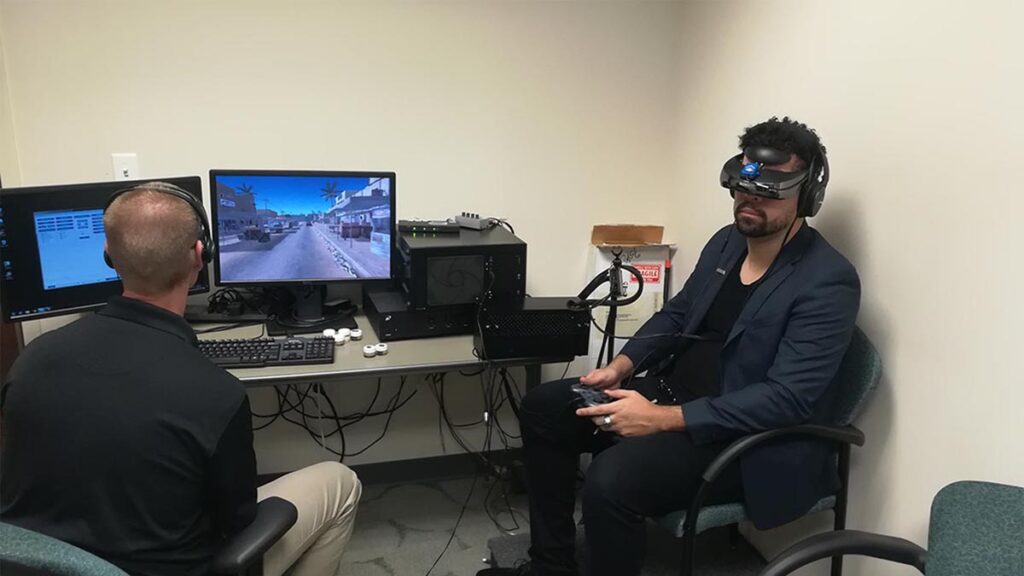
It’s estimated by the American Psychiatric Association that one in 11 people will be diagnosed with posttraumatic stress disorder (PTSD) in their lifetime, but new virtual reality (VR) technology is providing hope for the recovery of those suffering.
UCF RESTORES, a nonprofit trauma research center and treatment clinic at the University of Central Florida, has developed a state-of-the-art VR treatment tool that can be customized to each patient’s traumatic experience, immersing them in the sights, smells, and sounds of the original trauma.
The center is now launching a clinical trial to study the effectiveness of this new VR treatment tool in treatment of adults with PTSD as a result of a traumatic event that occurred in adulthood.
Individuals 18 years of age or older in the U.S. who meet the diagnostic criteria for PTSD are eligible to participate in this study.
The treatment program – including a pre-treatment evaluation, two weeks of treatment, and post-treatment assessments – is available at no cost and hotel accommodations will be provided during the two-week treatment, as needed.
Since 2011, UCF RESTORES has worked to change the way PTSD is understood, diagnosed, and treated.
The organization’s unique approach to treatment – combining exposure therapy, emerging technology, one-on-one and group therapy sessions – has resulted in 66 percent of participants with combat-related trauma and 76 percent of first responders no longer meeting the diagnostic criteria for PTSD following three weeks of intensive treatment.
“With this tool in hand, we will be able to dynamically recreate scenarios that are customized to each patient’s unique experience, ultimately helping them process traumatic memories, put them in their place and regain control of their daily lives,” UCF RESTORES Executive Director Deborah Beidel, said in a statement.

The U.S. Department of Defense recognized the high success rate of RESTORES’ treatment and in 2018 awarded the clinic $3 million to develop this enhanced VR treatment tool to address a wider range of traumatic events that could result in PTSD.
Until now, the organization’s use of VR in treatment has relied upon a third-party system with limited customization of its visual elements. This new VR tool will be used to test the efficacy of UCF RESTORES’ exposure therapy treatment in a further condensed, two-week intensive format.